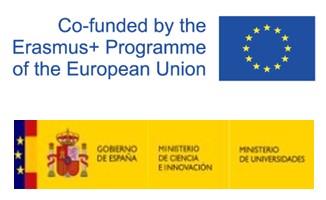Download the Knowledge Mobilisation Report in EN
IO1 related activities will address the project’s first objective: to make visible the performance of the research groups in terms of Inclusion through Knowledge Mobilisation (KM) strategies as the basis for USR. Moreover, it will address also the second objective: to validate the “Inclusive Responsible Research” profiles found at international level.
Main research questions are: Are research traditions stable within each research area? Are there any differences among countries? Is it possible to establish different patterns? To answer all these questions and others related will facilitate the establishment of more effective action plans. The first step is to build a tool that help us to get the information we need, that is, we need the indicators that allow us to measure the degree of KM carried out by the research groups. But this tool has added value in itself as will allow also stakeholders (research groups, university research managers, etc.) to measure and assess how they or their institution is mobilizing the knowledge they produce and if this mobilisation is being actually inclusive to the society. This working tool will consist of a pool of indicators classified by content factors. The main objective is to facilitate the measurement of inclusion through KM strategies. So, we will use it as research group to get our objective. Moreover, we will share it to the rest of stakeholders so that they can use it to improve their performance in terms of inclusion as part of the USR. Thus, to get those indicators we will begin with a search to expand and update the list of indicators available on inclusion through Knowledge Mobilisation strategies, as well as all relevant information regarding the modulating variables to be considered in the research groups: level of consolidation, gender composition, size, etc. Once the indicators have been selected, they will be adapted to the research field and will be validated by researchers experts in inclusion. Once the indicators have been validated, the catalogue of inclusion through knowledge mobilisation indicators will be drawn up. These indicators will be classified into the two major factors that characterise inclusive research and KM: the participatory perspective and the ethical perspective. For each one of these factors will take into account all phases of the research process: Problem Statement, Research Design, Information Collection, Analysis of data and conclusions and Dissemination.
That is, we will have a minimum of 10 indicators of inclusion/KM with the indicators, an interview will be designed and used to obtain information from the official research groups of the participating universities. These interviews will have a triple objective:
- To establish the baseline of the current “Responsible Inclusive Research” in our universities;
- To raise awareness among stakeholders of the importance of being inclusive in their procedures and in the dissemination of results;
- To detect good practices of all indicators in all the modulating variables considered (minimum: Branch, Type and Size). Achieving these practices is fundamental so that all research groups can feel identified and motivated.
Expected results
Within IO1, the project will provide the participating universities with a series of reports describing the current situation of the university with respect to KM. Specifically, the following reports will be made for O1:
- 30 (minimum) research group profile reports per university. Making a total of 150 individual reports among the 5 institutions. In which we will show each group, their research profile in terms of KM.
- 5 university reports, in which we will reveal to the university heads of research of the participating universities the current state of the institution dealing to KM. Specific information will also be included on some of the MoRRI indicators (EC. 2018) for these institutions (specifically, those related to Equality Gender: GE1 and GE8; Open Access: OA1; OA3 and Ethics: E1a).
- 1 global report of the 5 participating institutions that will be sent to all universities in the partner countries, both public and private (128 in Spain, 32 in Austria, 106 in Romania, 19 in Serbia and 7 in Slovenia) as well as to the institutions in other countries that have shown their support.
Indirect results :
- Improve understanding of different research traditions based on research groups’ gender profiles, consolidation, size and research area.
- Identify good practices in inclusive research through knowledge mobilisation strategies.
- Promote the development of a new university policy in the field of research focused not only on the scientific-technical impact, but also on the social impact.
- Support social impact through the methodology used and the mobilisation of all the results among the interest groups:
- Rise Awareness in:
- Participating research groups. It is expected that the research groups will become aware of the need to carry out research that is more inclusive and open to society.
- Institutional research managers. As part of the university’s management, they are directly responsible for developing the Social Responsibility plans.
